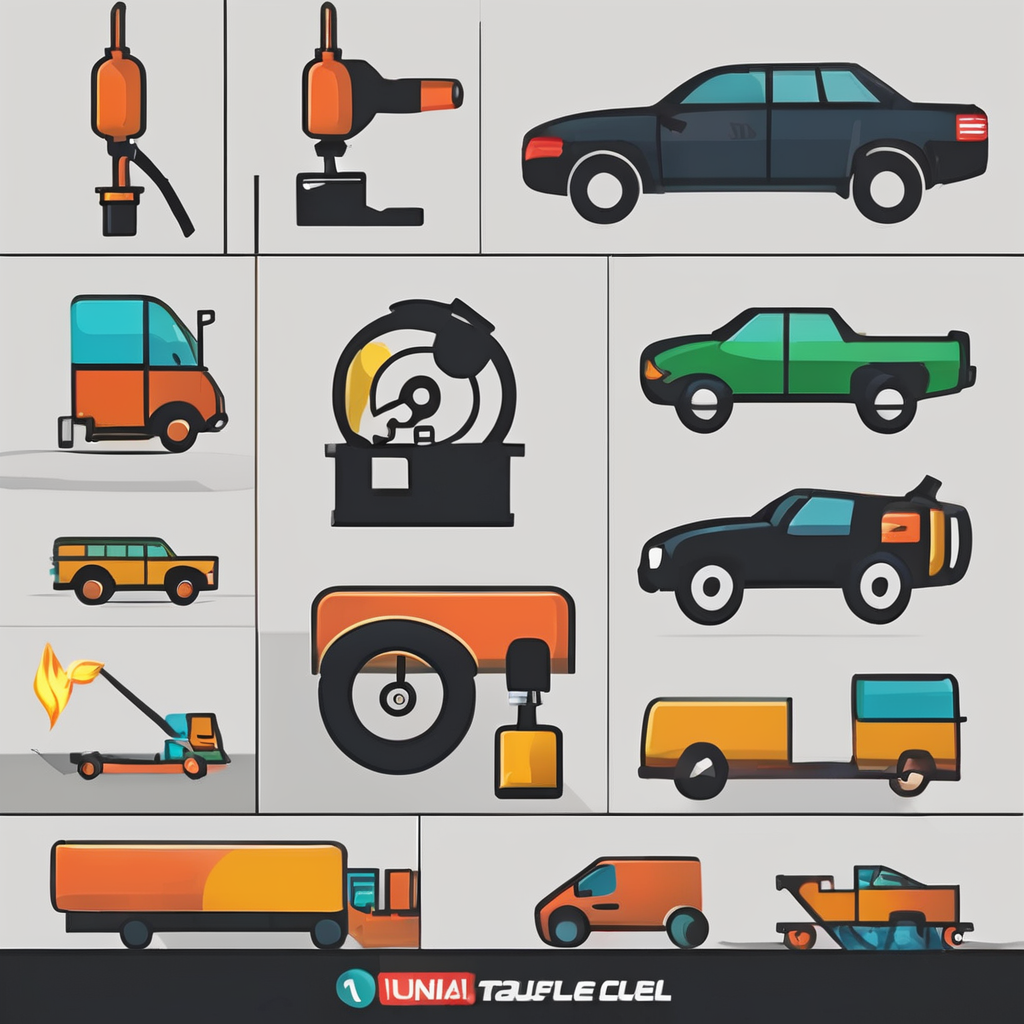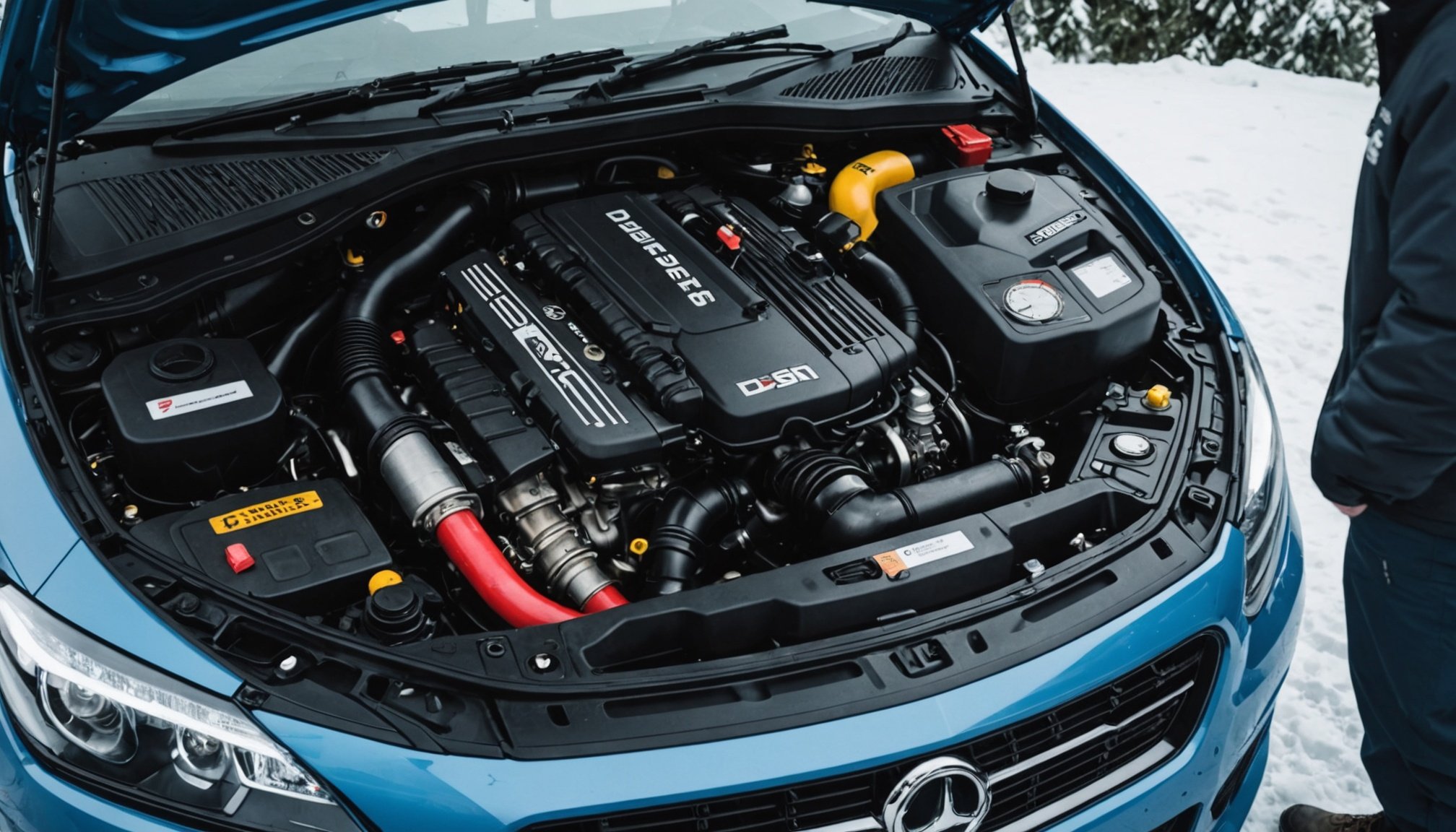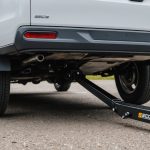Ultimate Guide to Winter-Proofing Your Diesel Engine for UK Vehicles
As the UK braces for another chilly winter, ensuring your diesel engine is ready for the cold is crucial for both performance and safety. Here’s a comprehensive guide to help you winter-proof your diesel engine, covering everything from fuel protection to tyre maintenance and emergency preparedness.
Understanding the Challenges of Winter Driving
Winter driving presents a unique set of challenges for your vehicle, particularly for diesel engines. One of the primary concerns is the impact of cold temperatures on diesel fuel.
Also read : Maximize your vehicle”s towing potential: a comprehensive guide to complying with uk regulations
The Paraffin Problem
Diesel fuel contains paraffin, a wax that solidifies in cold weather, causing the fuel to clog and potentially leading to engine failure. This issue can be mitigated with the use of additives like Diesel Flow Fit, which provides anti-clog protection up to temperatures of -31 degrees Celsius[1].
Protecting Your Diesel Fuel
To keep your diesel fuel flowing smoothly in cold weather, here are some essential steps:
Additional reading : Mastering road rage on uk motorways: essential tips for staying calm and safe
Use Fuel Additives
Adding a fuel additive like Diesel Flow Fit is a simple yet effective way to protect your diesel fuel from clogging. These additives work by preventing the paraffin in the fuel from crystallizing and blocking the fuel filter.
- Add the additive directly to your fuel tank before fueling.
- Ensure the additive is mixed well with the diesel fuel.
- Use it especially if you are leaving your vehicle outdoors or planning a trip to colder regions.
Choose Winter Diesel
While not always available, winter diesel is formulated to be less affected by cold temperatures. However, if winter diesel is not an option, fuel additives become even more crucial.
Maintaining Your Tyres
Tyres are the single most important factor in maintaining traction and control during winter driving.
Winter Tyres vs. Summer and All-Season Tyres
Winter tyres are engineered specifically for cold-weather driving. Here’s why you should consider them:
- Superior Grip: Winter tyres have softer rubber compounds that remain pliable in freezing temperatures, providing better grip on icy and snowy roads[2].
- Deeper Treads: Winter tyres typically feature deeper treads, which improve their ability to disperse water and snow, reducing the risk of aquaplaning.
- Legal Tread Depth: In the UK, the legal minimum tread depth is 1.6mm, but experts recommend replacing tyres once the tread depth falls below 3mm during winter[2].
How to Check Tyre Tread and Pressure
Regular checks are essential to ensure your tyres are in good condition.
- Use a tyre tread depth gauge to check the tread depth.
- Check tyre pressure at least once a month and before long journeys.
- Ensure the pressure matches the manufacturer’s recommendations, which can be found in your vehicle’s manual or on the tyre information placard.
Cooling System Maintenance
Your vehicle’s cooling system is critical in preventing the engine from freezing or overheating.
The Role of Coolant and Antifreeze
Coolant and antifreeze are essential year-round but particularly crucial in winter.
- Prevent Freezing: Antifreeze lowers the freezing point of the coolant, ensuring it doesn’t solidify in cold temperatures[2].
- Prevent Overheating: Antifreeze also raises the boiling point, preventing overheating.
- How to Check and Top Up: Regularly check the coolant level and top it up as necessary. Use a mixture of antifreeze and water as recommended by the manufacturer.
Battery Health
Cold temperatures can significantly reduce a battery’s ability to hold a charge.
Why Batteries Fail in Winter
- Increased Demand: Heaters, lights, and windscreen wipers increase the demand on the battery.
- Cold Temperatures: Batteries lose their efficiency in cold weather.
Tips for Maintaining Battery Health
- Check Age: If your battery is over three years old, consider replacing it.
- Check Health Indicator: Modern batteries often have a health indicator that you can check yourself or at a garage.
- Avoid Deep Discharge: Try to keep your battery charged, especially if you’re not using your vehicle frequently.
Visibility and Lighting
Clear visibility is vital for safe winter driving.
Preventing Frost Build-Up Overnight
- Use De-Icers and Ice Scrapers Correctly: Apply de-icer to your windscreen and use an ice scraper to clear frost and ice.
- Wiper Blades and Washer Fluid: Replace wiper blades if they leave streaks or make squeaking noises. Use a winter-grade washer fluid to prevent it from freezing in the tank[2].
Ensuring All Lights Are Functioning
- Check All Lights: Ensure all lights, including headlights, taillights, and fog lights, are functioning properly.
- Clean and Adjust Headlights: Use a headlight restoration kit to polish cloudy headlight lenses. Adjust headlights to avoid dazzling oncoming drivers, especially if you’re carrying heavy loads[2].
Emergency Preparedness
Even with the best preparation, breakdowns can happen. Here’s what you need to do to be ready:
Essential Items to Carry
- Jumper cables
- Spare tyre and tyre-changing equipment
- Flashlight and extra batteries
- First aid kit
- Warm clothing and blankets
- Snacks and water
- Fully charged power bank for your mobile phone
- Basic toolkit
- Reflective triangles or road flares
Pro Tip: Portable Power Banks
A fully charged power bank ensures you can call for help even if your mobile phone battery dies. This is especially important during winter when you might be stranded in cold conditions[2].
Additional Tips for Winter Driving
Here are some additional tips to keep in mind:
Check Your Vehicle Regularly
Regular checks can help identify potential issues before they become major problems.
- Check your oil level and top it up as necessary.
- Check for any signs of rust or corrosion.
- Ensure all fluids, including engine oil, coolant, and brake fluid, are at the recommended levels.
Use the Right Engine Oil
Using the right engine oil can make a significant difference in your vehicle’s performance during winter.
- Choose an oil with a lower viscosity for better cold-start performance.
- Consider using synthetic oil, which performs better in extreme temperatures.
Consider Diesel Heaters
If you live in an extremely cold area or use your vehicle for extended periods in cold weather, consider installing a diesel heater. These heaters can help warm up your engine and cabin before you start driving.
Financial Considerations
Winter-proofing your vehicle also involves considering the financial aspects.
Road Tax
Changes in Vehicle Excise Duty (VED) from April 2025 will affect the total cost of ownership for your vehicle. Here’s a summary of the new rates:
| CO₂ Emissions (g/km) | First-Year VED Rate |
|---|---|
| 0 | £10 |
| 1-50 | £110 |
| 51-75 | £130 |
| 76-90 | £270 |
| 91-100 | £350 |
| 101-110 | £390 |
| 111-130 | £440 |
| 131-150 | £540 |
| 151-170 | £1,360 |
| 171-190 | £2,190 |
| 191-225 | £3,300 |
| 226-255 | £4,680 |
| Over 255 | £5,490 |
After the first year, a standard VED rate of £195 applies annually for petrol, diesel, and electric vehicles[5].
Car Insurance
Ensure your car insurance covers you for winter driving. Some policies may offer additional coverage for breakdowns or accidents during winter.
Winter-proofing your diesel engine is a multifaceted process that involves protecting your fuel, maintaining your tyres, ensuring your cooling system is in good condition, checking your battery health, and being prepared for emergencies. Here’s a final checklist to keep in mind:
- Use fuel additives to prevent diesel clogging.
- Fit winter tyres for better grip and traction.
- Check and top up your coolant and antifreeze.
- Ensure your battery is in good health.
- Maintain clear visibility with proper wiper blades and washer fluid.
- Carry an emergency kit with essential items.
- Check your vehicle regularly for any signs of wear or damage.
- Use the right engine oil for better performance in cold weather.
- Consider installing a diesel heater for added comfort and engine protection.
By following these tips, you can ensure your diesel engine is ready to face the challenges of winter driving, keeping you safe and your vehicle in top condition.
Quotes and Insights
- “Preparing your vehicle for winter isn’t just about convenience—it’s about protecting yourself, your passengers, and other road users,” says WCarey Motor Engineers[2].
- “Cold temperatures reduce a battery’s ability to hold a charge. Coupled with increased demand from heaters, lights, and windscreen wipers, this makes winter the most common season for battery failure,” highlights the importance of battery health during winter[2].
- “Using the right engine oil can make a significant difference in your vehicle’s performance during winter. Choose an oil with a lower viscosity for better cold-start performance,” advises Millers Oils[3].
By taking these steps and staying informed, you can enjoy a safer and more reliable driving experience throughout the winter months.











